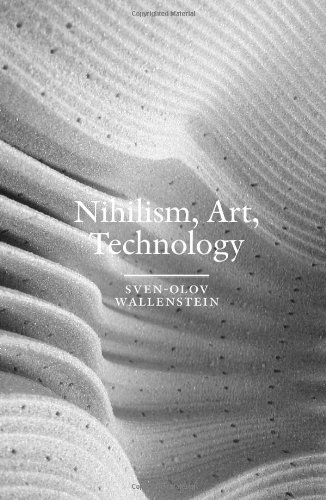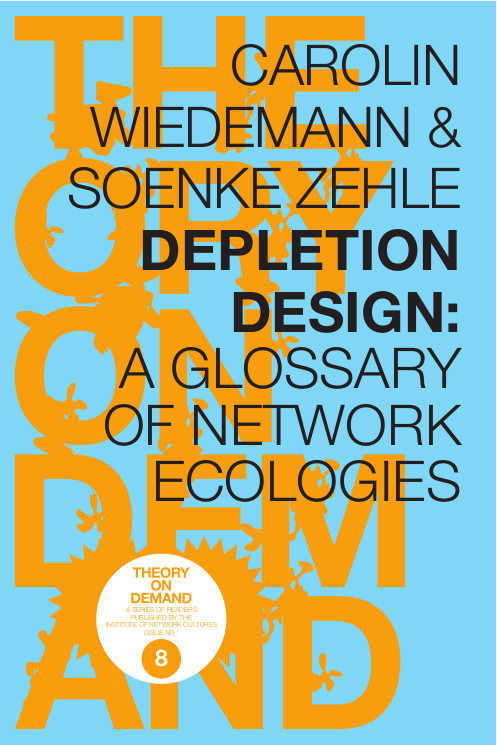Lewis Mumford: Art and Technics (1952–) [English, Greek]
Filed under book | Tags: · architecture, art, city, craft, machine, mechanics, technology

Lewis Mumford — architectural critic, theorist of technology, urbanist, cultural critic, historian, biographer, and philosopher — was the author of almost thirty books, many of which expounded his views on the perils of urban sprawl and a society obsessed with “technics.”
In these lectures delivered at Columbia University in 1951, Mumford explores “the ethical problems that drove all of his writings on art, technology and urbanism: the severing of the bonds of fellowship and community in advanced industrial society; the waning sense of a public good and the resulting moral crisis of modern life; the cultural divide separating an instrumental language of technique from the symbolic language of aesthetic experience; and the plight of ‘personality’ in a bureaucratic age.” (from the introduction to the 2000 edition)
Publisher Columbia University Press, New York, 1952
Bampton Lectures in America, 4
162 pages
Review (R. L. A., Philosophy of Science, 1953)
Art and Technics (English, 1952, removed on 2019-10-3 upon request from publisher)
Τέχνη και τεχνική (Greek, trans. Βασίλης Τομανάς, 1997)
Sven-Olov Wallenstein: Nihilism, Art, and Technology (2010)
Filed under thesis | Tags: · aesthetics, architecture, art, art history, avant-garde, nihilism, philosophy, technology

Beginning in an analysis of three paradigmatic instances of the encounter between art and technology in modernism—the invention of photography, the step beyond art in Futurism and Constructivism, and the interpretation of technology in debates on architectural theory in the 1920s and ’30s—this book analyzes three philosophical responses to the question of nihilism—those of Walter Benjamin, Ernst Jünger, and Martin Heidegger—all of which are characterized by an avant-garde sensibility that looks to art as a way to counter the crisis of modernity.
These responses are then brought to bear on the work of the architect Mies van der Rohe, whose “silence”—understood as a withdrawal of language, sense, and aesthetic perception—is analyzed as a key problem in the interpretation of the legacy of modernism. From this, a different understanding of nihilism, art, and technology emerges. These concepts form a field of constant modulation, which implies that the foundations of critical theory must be subjected to a historical analysis that acknowledges them as ongoing processes of construction, and that also accounts for the capacity of technologies and artistic practices to intervene in the formation of philosophical concepts.
Originally presented as a compilation thesis in theoretical philosophy, the work was published as a book by Axl Books in 2011.
Doctoral Thesis
Department of Philosophy, Stockholm University, 2010
ISBN 9789174470734
92 pages
Publisher (Thesis)
Publisher (Book)
PDF (Thesis; without images)
Comment (0)Carolin Wiedemann, Soenke Zehle (eds.): Depletion Design: A Glossary of Network Ecologies (2012)
Filed under book | Tags: · algorithm, anonymous, architecture, biopolitics, commons, creative industries, cyborg, design, ecology, hackerspace, media ecology, network ecology, networks, politics, remix, software, spam, technology, theory

“Depletion Design suggests that ideas of exhaustion cut across cultural, environmentalist, and political idioms and offers ways to explore the emergence of new material assemblages. Soenke Zehle and Carolin Wiedemann discuss Depletion Design with Marie-Luise Angerer, Jennifer Gabrys and David M. Berry, inviting tm13 participants into a collaborative reflection on the necessity to understand human beings as one species among others – constituted by interactions of media, organisms, weather patterns, ecosystems, thought patterns, cities, discourses, fashions, populations, brains, markets, dance nights and bacterial exchanges (Angerer); on the material leftovers of electronics as provocations to think through and rework practices of material politics that may be less exploitative within our natural-cultural relationships (Gabrys); and on lines of flight from and through the computational – about expanding them into new ways of living beyond current limitations and towards new means of judgment and politics (Berry).
We, or so we are told, are running out of time, of time to develop alternatives to a new politics of emergency, as constant crisis has exhausted the means of a politics of representation too slow for the state of exception, too ignorant of the distribution of political agency, too focused on the governability of financial architectures. But new forms of individual and collective agency already emerge, as we learn to live, love, work within the horizon of depletion, to ask what it means to sustain ourselves, each other, again. Of these and other knowledges so created, there can no longer be an encyclopedia; a glossary, perhaps.”
Contributors: Marie-Luise Angerer (Cyborg), Franco ‘Bifo’ Berardi (Exhaustion, Soul Work), David M. Berry (On Terminality), Zach Blas (Queer Darkness), Drew S. Burk (Grey Ecology), Gabriella Coleman (Anonymous), Heidi Rae Cooley (Ecologies of Practice), Sebastian Deterding (Playful Technologies, Persuasive Design), Jennifer Gabrys (Natural History, Salvage), Johannes Grenzfurthner & Frank A. Schneider (Hackerspace), Eric Kluitenberg (Sustainable Immobility), Boyan Manchev (Disorganisation, Persistence), Lev Manovich (Software), Sonia Matos (Wicked Problems), Timothy Morton (Ecology without Nature), Jason W. Moore (Crisis), Anna Munster (Digital Embodiment), Eduardo Navas (Remix[ing] Re/Appropriations), Brett Neilson (Fracking), Sebastian Olma (Biopolitics, Creative Industries, Vitalism), Luciana Parisi (Algorithmic Architecture), Jussi Parikka (Dust Matter), Judith Revel (Common), Ned Rossiter (Dirt Research), Sean Smith (Information Bomb), Hito Steyerl (Spam of the Earth)
Publisher Institute of Network Cultures, Amsterdam, Dec 2012
Theory on Demand series, 8
Creative Commons Attribution-NonCommercial-ShareAlike 3.0 Netherlands License
ISBN 9789081857512
via jussiparikka.net
PDF, PDF (updated on 2015-7-9)
Comment (0)
